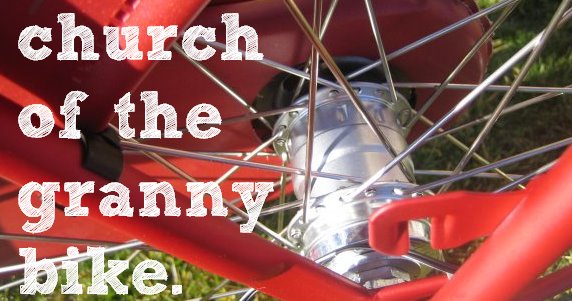Oral history is fickle. I should know this-- I spend enough time transcribing them to know that as far as creating a useful historical record, it's pretty hit or miss. But I hadn't really realized this applied to me until yesterday. Typically I roll into an interview, introduce myself and my project, lay out what we'll be doing, and then I ask whatever questions I want for as long as I can keep coming up with them. And then I leave. I generally expect that the hardest part will be setting up the interview, and as a payout for my troubles, I get whatever information I can tease out of the narrator in the space of an hour. It's really straight forward. I love coming up with a list of questions specifically for the person I'm interviewing. I love collaborating with people to create something that's completely about them. I love getting to meander through people's life stories. There are really few things I love more than sitting down for an interview.
So yesterday I went out to Ogden to interview Mrs. Jackpot. Due to some new medication, I was really nauseated, but I determined to soldier through. I had prepared a list of questions that was phenomenally complete, a list of questions that might just yield my most informative interview ever. I wasn't excited because I felt like shit, but I was expectant as I made my way up I-15. I met Mrs. Jackpot on her porch, where we would be conducting the interview. Before I could really explain why I was even there-- an exercise that I think really helps give the interview the direction I want it to take-- she, clad in a black housecoat and sunglasses, reclined in her lawn chair and began telling stories. And she did so for two hours. She told stories of being a young woman in New Jersey during World War II, of living abroad during her husband's Air Force Service, her shock at finding America morally depraved upon her return. She talked and talked and talked.
And I couldn't get what I wanted. I am terrified to listen to the recording, of having to hear myself, as I sat in that ancient pink metal lawn chair, asking seemingly random questions to try to pull the interview towards my topic. She couldn't remember dates. She couldn't remember names. She stopped answering my questions and started soapboxing. I was crushed, and did my best to seem engaged and to appear like I was paying attention. I have never been as relieved as I was when she suggested we have a soda, and I turned off the recorder. We went in her house and while I drank a Sprite, she told me about Pope John Paul and Pope Benedict and Mother Teresa. I'm sure I glazed over; I wanted so badly to leave and there just didn't seem to be an opportunity for an exit. After an hour it was like she snapped out of her line of thought, reentered the conversation with a previously absent tone of clarity-- as if she had just noticed I was still there-- and said, "Well I suppose you'd like to go now." I thanked her and left, trying to be gracious but probably appearing as tired as I felt.
I'm still recovering from the interview. I am not upset with her-- it is clear to me that the window of opportunity for a more typical interview with her is closed, just as I remembered it closing with my great-grandmother after tea several years ago. But the disappointment really caught me off guard. I like to argue that oral history is an optimal mode for getting information, that it offers people the opportunity to interpret their own life experiences and in that way, to have some say in what is written about them as historical figures. I get really idealistic about it because I really believe in it.
So it shook me, when I questioned the usefulness of oral history. If all she could provide were a bevy of stories that would be impossible to fact check, had I really helped her create something of benefit to other people, let alone myself? Instead of history, had I really just been doing community service, sitting with an old lady for an afternoon while she spun yarns that I struggled to make sense of? Certainly that is valuable-- I don't mean to denigrate community service or the aged-- but when it's too late, or when the process stops being collaborative, or when the narrative gives way to rambling, I just don't know. I don't know that it was worth the effort yesterday. I don't know if it is ethical to use an interview with a woman who is at the beginning of the great scrambling of memories that comes with getting older. I don't know that my project is any clearer-- I am completely clueless as to what the next step is. I don't know that I can really rely on people for the information that I can't seem to find anywhere-- is it possible that a history for this organization doesn't exist, can't exist? I just don't know.

1 comment:
I suppose at some point you will need to acknowledge that last possibility in your paper, perhaps by untangling or re-knitting some of Mrs. Jackpot's yarns. Good luck.
Post a Comment